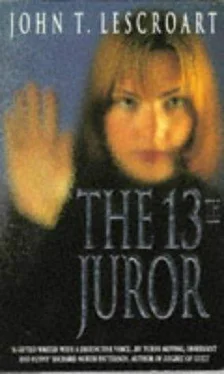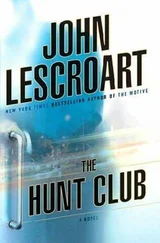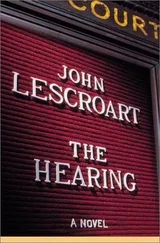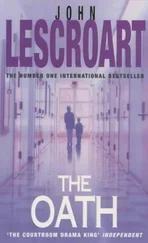John Lescroart - The 13th Juror
Здесь есть возможность читать онлайн «John Lescroart - The 13th Juror» весь текст электронной книги совершенно бесплатно (целиком полную версию без сокращений). В некоторых случаях можно слушать аудио, скачать через торрент в формате fb2 и присутствует краткое содержание. Жанр: Триллер, на английском языке. Описание произведения, (предисловие) а так же отзывы посетителей доступны на портале библиотеки ЛибКат.
- Название:The 13th Juror
- Автор:
- Жанр:
- Год:неизвестен
- ISBN:нет данных
- Рейтинг книги:4 / 5. Голосов: 1
-
Избранное:Добавить в избранное
- Отзывы:
-
Ваша оценка:
- 80
- 1
- 2
- 3
- 4
- 5
The 13th Juror: краткое содержание, описание и аннотация
Предлагаем к чтению аннотацию, описание, краткое содержание или предисловие (зависит от того, что написал сам автор книги «The 13th Juror»). Если вы не нашли необходимую информацию о книге — напишите в комментариях, мы постараемся отыскать её.
The 13th Juror — читать онлайн бесплатно полную книгу (весь текст) целиком
Ниже представлен текст книги, разбитый по страницам. Система сохранения места последней прочитанной страницы, позволяет с удобством читать онлайн бесплатно книгу «The 13th Juror», без необходимости каждый раз заново искать на чём Вы остановились. Поставьте закладку, и сможете в любой момент перейти на страницу, на которой закончили чтение.
Интервал:
Закладка:
With the Lightner business being introduced, despite David's best efforts to neutralize it, the wind had seemed to go out of the defense's sails. Of course, Freeman would never admit defeat, or the likelihood of it, and he was doing his best to keep the ship sailing, but the ballast – the weight of all of Jennifer's apparent lies – now seemed to be just too much. There was a scrambling feel to the defense now, a sense that all the arguments and pyrotechnics weren't leading to the truth, weren't in the service of justice, despite Freeman's arguments.
The jury wasn't going to vote your way if you didn't convince them there was an alternate truth that perhaps they just weren't seeing. For a while, even he had believed in the possibility of an alternate truth that might be convincing. He thought the jury would, too, and what was reasonable doubt if it wasn't that?
Now – maybe it was, after all, something in the air – but like the Giants and their sore arms, Freeman had started well but with the failure to come up with at least one convincing other dude, and the bombshell about Lightner and Jennifer, well, he feared the season could be over.
On Monday Jennifer was escorted into the courtroom by David Freeman on one side and the bailiff on the other. As opposed to the fashionable clothes she had been wearing throughout, she wore a maroon runner's outfit and some high-tech tennis shoes. Her hair was tied back in a ponytail, and Hardy thought she looked about seventeen-years-old.
When Villars ascended to the bench she immediately noticed the change and frowned. "Mr. Freeman, would you approach?"
Hardy watched his partner chatting with the judge, nodding, gesturing. Voices didn't get raised, and in a minute Freeman was back at the defense table, smiling. "What could she do?" he said.
Freeman called Lisa Jennings, the other jogger, who was dressed identically to Jennifer. The gallery caught it, and Villars rapped her gavel a couple of times, calling for order.
Lisa did not look exactly like the defendant, but in their matching outfits, with their hair cut the same, – Freeman had paid Lisa to cut hers – there was no denying the similarity. Lisa was a little thinner and an inch or two taller, but they were both medium-boned, attractive blonde women in their twenties.
Hardy thought Freeman shouldn't have Lisa say a word. He should just call Alvarez and see what happened. But Freeman could no more do that than he could whistle with a mouth full of thumb tacks.
Though Hardy had warned Freeman – often and vigorously – that Lisa's testimony could be chopped up and masticated by Powell, still the old dog wanted to introduce it to the jury. "It'll ring true," he had told Hardy. "You wait."
And, in fact, he was right. Lisa's testimony itself – stopping at the house, hearing the shots, running off after a minute or so – all of it did ring true.
The problem, as Hardy had argued again and again, was that even if it had happened, they had no way to prove it had happened on December 28.
And Powell – no surprise – did not seem inclined to let that omission slide.
"Ms. Jennings, how often do you run down Olympia Way in the course of, say, a month?"
"Several days a week, I'd say." She may have been nasty to Hardy when he had first tried to corral her, but Lisa came across as a cooperative, even friendly person. Now that she was here, committed, she wanted to please. "Maybe… fifteen, twenty times a month."
"And you've been doing that for how long?"
"A couple of years, I'd say. Almost three."
"So you run by Mrs. Witt's house what… about two hundred times? Something like that?"
"Yes."
"And do you keep a log of where you've gone on which days, which route you've run?"
Lisa looked at Freeman, then back at Powell. "No, I just run."
"So, you don't know for a fact when you heard these noises on Olympia Way that you've just testified about, do you?"
"Well, I only heard them once."
"Two noises, like gunshots?"
"Yes."
Powell nodded, taking his time. He looked over at the jury, his face showing a question mark. "I see. And hearing these gunshots, did you report them to the police?"
"No." Lisa rolled her shoulders, moving in the seat.
"Why not?"
"I don't know. I guess I didn't think they were gunshots."
Wide-eyed wonder broke out over Powell. "Oh? Why didn't you think they were?"
"I'm not sure. I guess that at the time I thought they were backfires or something."
"Could they have been backfires?"
Freeman, trying to save her, stood up and objected, but before he could even give grounds, Powell withdrew the question. But came right back. "You've mentioned the phrase, 'at the time.' This was on December 28, last year, is that right?"
Again, Lisa looked at Freeman. "I didn't say that."
"No, you didn't. That's why I ask." Powell smiled, a gentleman, only trying to get to the truth of the matter. "Take your time."
"I don't really know what day it was."
The wonder appeared again. "But surely it was last winter."
"I think it was. I know it was several months ago."
"Might it have been longer?"
"Your Honor! Counsel is badgering this witness." Freeman was standing, but he was going to lose and he knew it. He did.
"I don't think so," Villars said. "Overruled."
"Might it have been longer ago?" Powell asked again, mildly.
Suddenly Lisa's voice rose to a near-shout. "I don’t know when it was!" Shocked by what she'd done, she stared at Powell, then at the jury. Finally she apologized to the judge and repeated, in a near-whisper, "I don't know when it was."
"Thank you, Ms. Jennings. I have no further questions."
It was getting to the end.
Freeman had been intending to call Alvarez and get him to point at the two women – Lisa and Jennifer – in the back of the courtroom, at least demonstrate to the jury that a mistake in identifying one or the other would have been possible. In a sense, having Lisa simply appear accomplished the same result, although in Hardy's opinion it was nowhere near the victory he had been hoping for when he waited those mornings out in his car on the off-chance that Lisa would go jogging by.
Now, with Powell's undoing of the mistaken identity argument, Alvarez would not be called. They were down to the ATM, their last hope.
No one was exactly asleep, but it was a Monday afternoon, and even Hardy, who had memorized the numbers and carefully honed the theory to its present form, had to admit that this was the kind of testimony that reminded him of his after-lunch high school physics class, the one he had largely slept through.
Freeman was up with Isabel Reed, the young black woman who had been so taken with Abe Glitsky when he and Hardy had gone to visit her at the Bank of America half a year or more ago. In the course of a couple of interviews, the matter of the three-minute difference in times had come up and Freeman had brought it home strongly to Ms. Reed so that, on her own, without a direct question from him, she should not bring up the discrepancy. He wasn't sure, but it was possible it could get her in trouble.
This made Hardy uncomfortable – but again he got overridden. Freeman contended that if the prosecution knew about it and wanted to talk about it, they'd deal with it then, but they wouldn't feed them the extra three minutes. They might need them.
When he had Ms. Reed on the stand, Freeman had introduced Jennifer's own ATM receipt and a copy of the Bank of America's confirming report. Solid physical evidence that at 9:43, Bank of America time, Jennifer Witt had been standing at the automated teller machine, getting some spending money.
They were looking at a blown-up poster that had been set up next to the witness chair. It was a portion of a map of San Francisco showing the route from Olympia Way down Clarendon into the Haight-Ashbury district – the route Jennifer told Hardy she had taken that morning. On Friday, one of Freeman's witnesses had been Officer Gage again – he had been induced to talk about the distance from the Witt home to the bank – the shortest route along the streets – al long semicircle around the UCSF Medical Center, now outlined in red for the jury's benefit.
Читать дальшеИнтервал:
Закладка:
Похожие книги на «The 13th Juror»
Представляем Вашему вниманию похожие книги на «The 13th Juror» списком для выбора. Мы отобрали схожую по названию и смыслу литературу в надежде предоставить читателям больше вариантов отыскать новые, интересные, ещё непрочитанные произведения.
Обсуждение, отзывы о книге «The 13th Juror» и просто собственные мнения читателей. Оставьте ваши комментарии, напишите, что Вы думаете о произведении, его смысле или главных героях. Укажите что конкретно понравилось, а что нет, и почему Вы так считаете.












